You only protect what you love,
You only love what you know,
You only know what you have been taught.
Guðmundur Páll Ólafsson naturalist
Study Abroad
You want to bring your students to Iceland, but lack the connections and local logistical know-how? We are here to help!
Understand Iceland specializes in study-abroad tours for college and university students in N-America who want to explore Iceland’s dynamic nature and history. We organize trips around Iceland, focusing primarily on topics ranging from geology, biology, sustainability and nature conservation to history, archaeology, and culture.
We create connections with academic departments and research institutes, allowing students to interact with local experts in various disciplines and study Iceland through visits, field excursions, courses and lectures. We explore the most amazing scenery in Iceland: stunning volcanoes, lava fields, black beaches, and glaciers.
Our programs are designed for groups who seek a different kind of experience and wish to explore Iceland as well as relating it to their studies.
Along with academic study programs, we offer various outdoor activities, depending upon the wishes of the group.
Make Iceland your classroom through site visits, lectures, field research, service learning and hands-on activities.
We are passionate about every tour and proud of our personalized service. The groups are always led by an Icelandic guide with first-aid certification and a safety plan is made for every tour.
Send us an email to inquire or book a study tour.
We are here to help, what can we do for you?
We have a large network of local experts and academics.
Take a look at our long list of interesting lectures and courses offered on our Study Abroad programs!
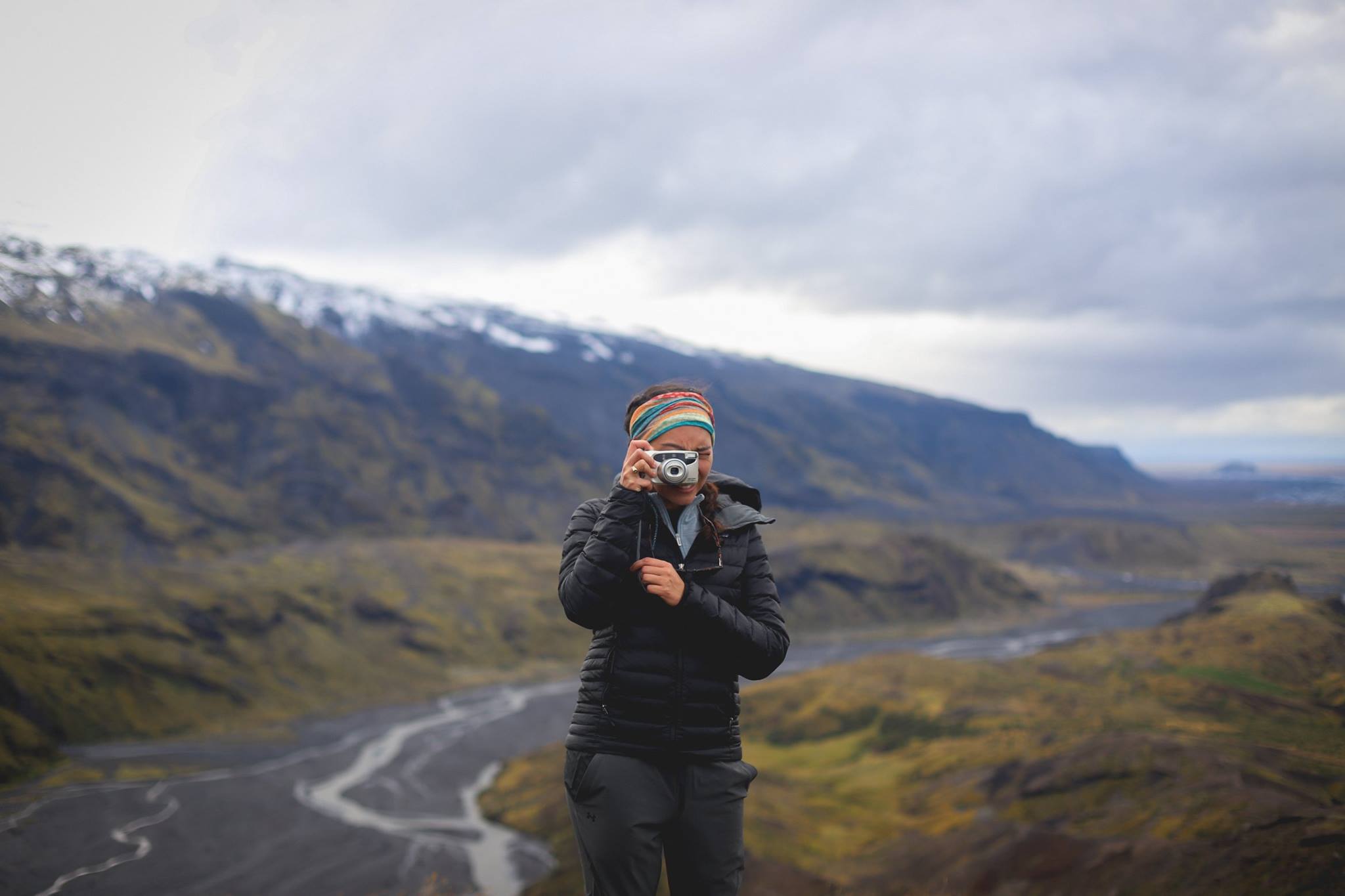
Creative Solutions to the Climate Crisis
Bring your students to one of the most sustainable country in the world – Iceland! In just 7 days your students will explore the concept of sustainability in a broad context.
Viking visions – culture heritage and history.
Bring your students into the heart of culture heritage and history of Iceland. Explore the sites where the Icelandic Sagas took place, meet the local experts who open up the world of the settlement and sagas. Learn about mythology, the old manuscripts, folklore and the Viking era of Iceland.
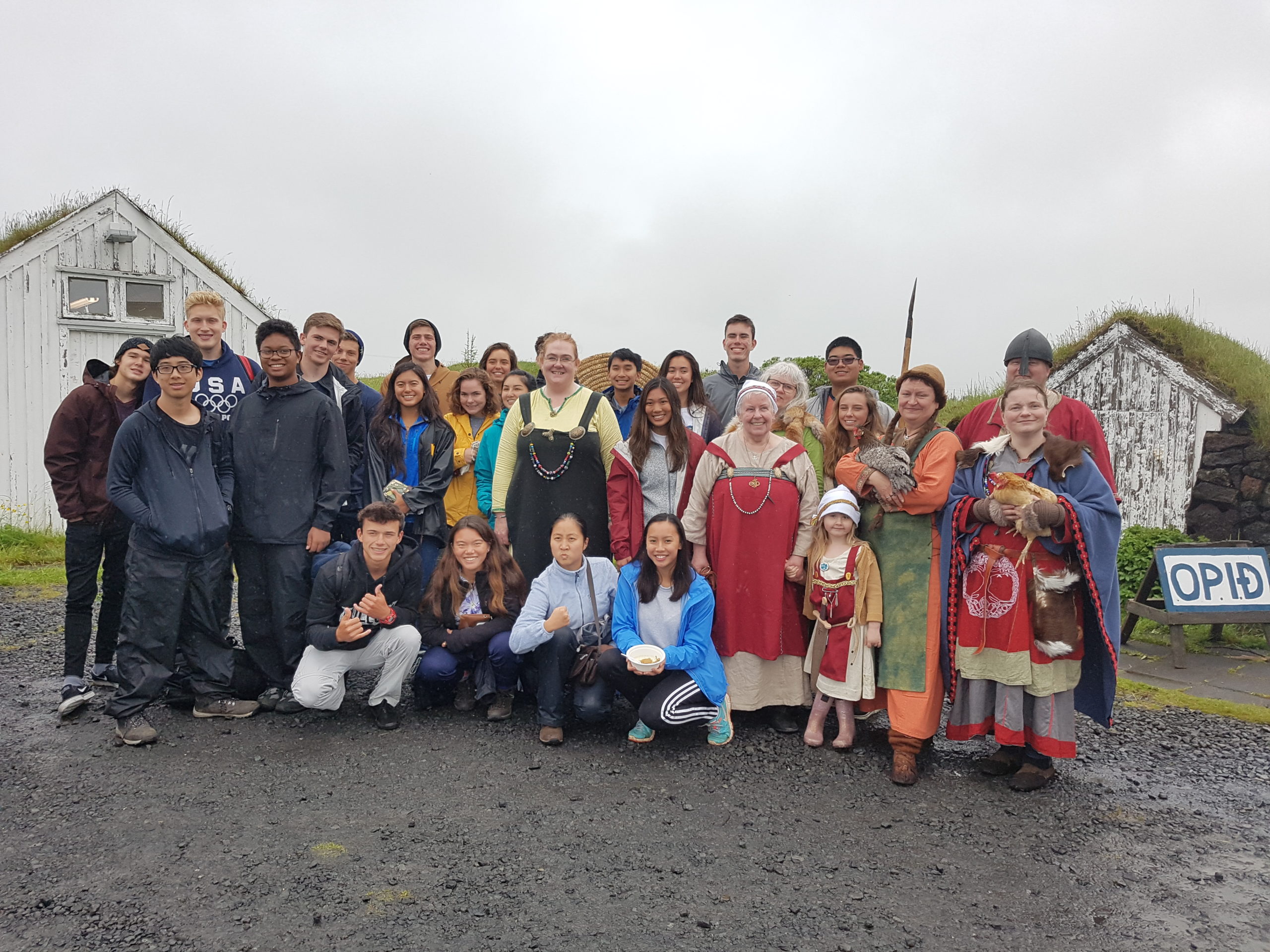
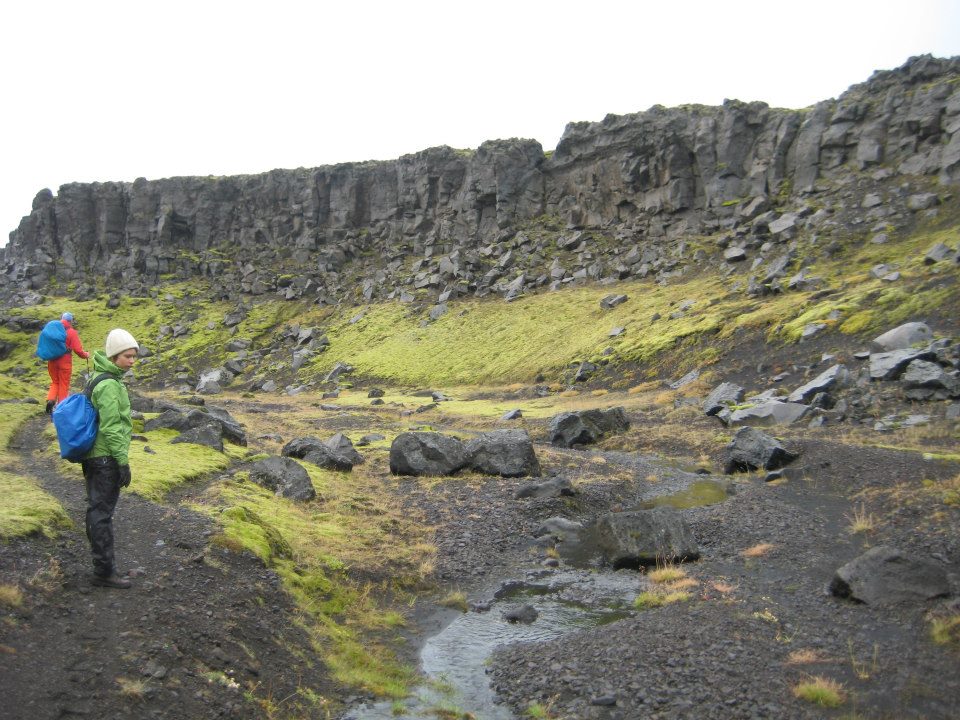
Customized faculty-led programs
Understand Iceland specializes in customised faculty-led study abroad programs for colleges and universities from North America who want to explore Iceland’s dynamic nature and history.
Testimonials from students and faculty
“The trip was tailored to our needs and preferences. On occassion we would find out about a great opportunity (for example visiting a retreating glacier) that was not orginally on the itinerary but Herdis would work her magic and make it work. were able to experience the real Iceland thanks to Herdis at Understand Iceland”. SustainableFinnland
“Wonderful tip with “Understand Iceland” Herdis’s knowledge of Iceland is AMAZING! Herdis provided the University group with deep information on the topology, the people and future climate change implications. She is so responsive to all of our questions and her planning skills are superb. We host a group to Iceland every year and plan to use Herdis each year”! Judith P
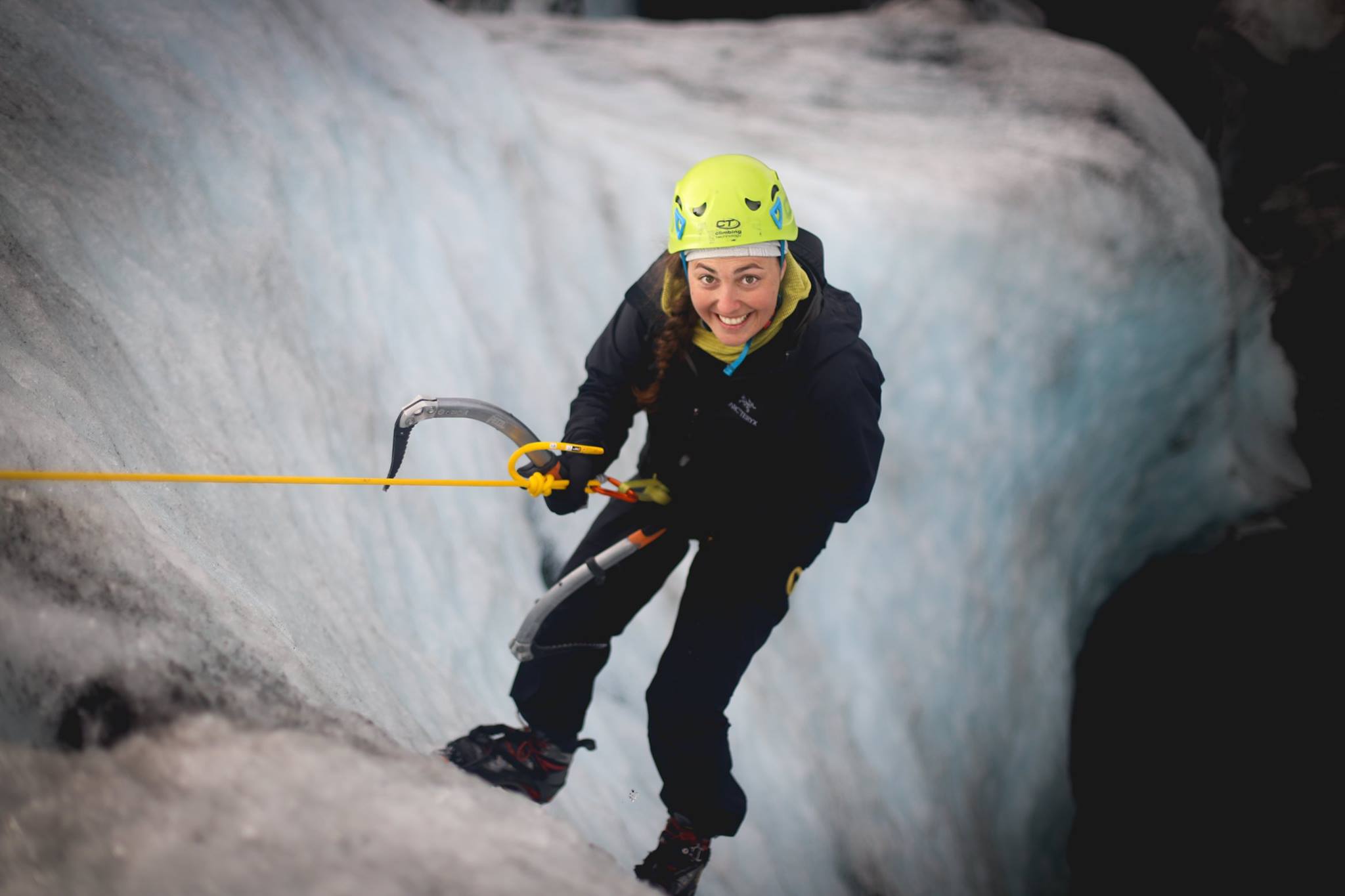
Lectures and courses on environment, sustainability and culture heritage.
Understand Iceland has a broad network of local experts with comprehensive knowledge of subjects related to your students’ curriculum.
Want your students to learn about sustainability, natural resourse management, tourism, geology or culture heritage?
Our local experts provide you with the knowledge you never knew you needed!
Lectures on environmental matter and sustainability in Iceland
A list of lectures on sustainability and environmental matters available for study abroad groups. Behind each topic there is one or more experts available to meet students for lectures or workshops.
Have a question? Please ask us in an email.
Renewable energy
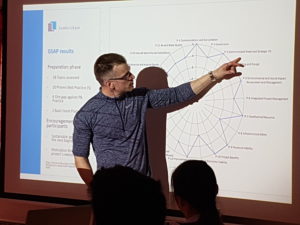
Lecture on renewable energy from Landsvirkjun power plant
Leading experts in renewable energy production meet with the students and explain the fundamentals of energy harvesting in Iceland, such as hydropower, geothermal energy and wind energy.
Have a question? Please ask us in an email.
Consumption and eco-friendly lifestyle
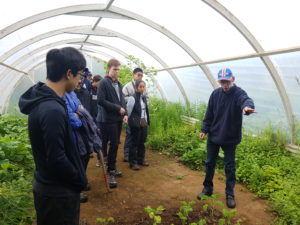
Students learn about eco friendly lifestyle at a sustinable community
The students will meet with individuals who have made changes in their own lifestyles in order to live a more sustainable and eco-friendlier lifestyle. They will learn practical solutions to everyday problems that will guide them in leading a more sustainable lifestyle.
Have a question? Please ask us in an email.
Renewable energy powerplants and exhibits
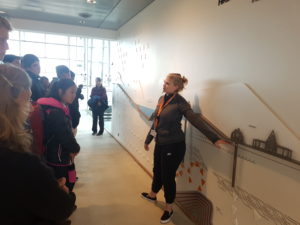
Learning about geothermal energy
Students visit geothermal powerplants and hydro-powerplants exhibitions and learn hands on about the evolution of electictricity, the fundamentals of electricity through entertaining and amazing experiments.
Students are introduced to the renewable and sustainable energy generation methods used in Iceland such as hydropower, geothermal energy and wind energy.
Experts will explain to the students the many significant steps man has taken in successfully harnessing this energy source. Learn about the renewable and sustainable energy generation methods used in Iceland for harnessing hydropower, geothermal energy and wind energy.
Have a question? Please ask us in an email.
Climate change at the arctic edge
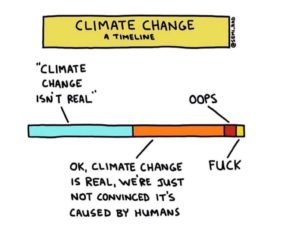
Climate change timeline
Understand Iceland offers lectures from leading scientists in meteorology that have years of experience in the subject of weather and climate.
The lectures are diverse but their aim is to give the students an overview of the existing knowledge of the impacts of climate change in Iceland, on arctic and global warming and athmospheric circulation.
Have a question? Please ask us in an email.
Sustainability
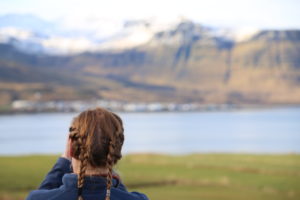
Picturing sustainability
Want your students to get a holistic view to sustainability, climate change and the circular economy in our day to day lives?
We bring experts who teach students what companies and individuals are doing to lower their carbon footprint and how the students can take their next step in lowering theirs.
Why should your students or anyone think sustainably and what does that mean?
Learn what companies are doing regarding sustainability and how good they are doing? What is the right choice? Will my one plastic straw really make a difference? We will bring experts to the table that will give your students the straight talk about sustainability.
Have a question? Please ask us in an email.
Policy making
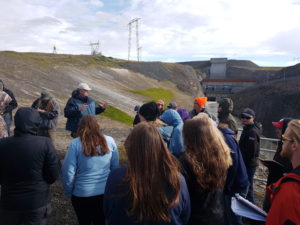
Learning from experts in the field
Meet with policy makers and faculty members of ministries and municipalities that will go through the environmental policy of the Icelandic government. They will explain how the decision process is and go over the future vision of environmental issues for Iceland.
Have a question? Please ask us in an email.
Carb-Fix project
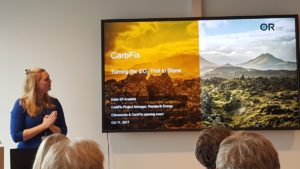
The CarbFix project
The students will learn about a cutting-edge technology where CO2 is captured and stored in bedrock in the ground. CarbFix is an industrial process where CO2 and other sour gases are captured from emission sources and permanently stored as rock in the subsurface.
Scientists will explain the evolution of this technology and explain how this secure, cost-effective and environmentally friendly method can reduce atmospheric CO2 levels world-wide.
Have a question? Please ask us in an email.
Carbon offset
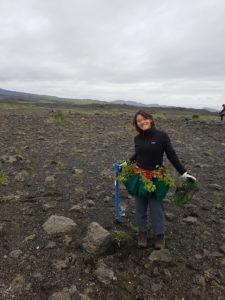
Student offsetting the carbon of their travel by planting trees in Iceland
There are several different ways to offset CO2 emission in Iceland. There are various NGOs projects that focus on planting trees and revegetating barren areas and black sands in Iceland. The students will learn about these projects and how Icelanders have in the past 120 years worked on bringing
The students will calculate the amount of CO2 emissions needed to offset because of their travels. They will plant trees or revegetate barren land in partnership with NGOs and learn how forestry and soil conservation projects in Iceland.
Have a question? Please ask us in an email.
Hands on experience – Data collection – Research
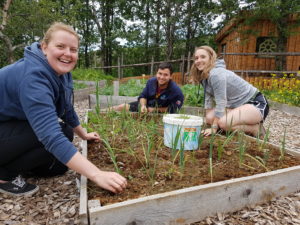
Students on study abroad in Iceland gaining hands on experience in Iceland
The students have various options of gaining hands on experience, data collections and research participation through different NGOs and environmental associations.
Among others Understand Iceland collaborates with the “University of Icelands Institute of Research Centres”. There are seven research centers located in different areas of Iceland that work with local authorities, institutions, businesses and individuals in rural areas. Their objective is to meet the demand for research and education in Iceland, and to provide facilities for research projects on various environmental issues.
The students can also volunteer for various NGOs on nature conservation projects like nature conservation, farming, treeplanting, soil conservation and more.
Have a question? Please ask us in an email.
Organic food production
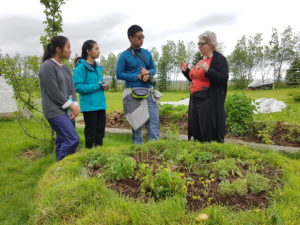
Learning from an organic farmer in Iceland
Icelands abundant geothermal energy resources makes it a perfect place for food production in greenhouses. In South West Iceland you can find many greenhouses where food is grown in greenhouses some in an organic manner.
The students can visit these greenhouses, meet the farmers and learn about the produce, the locally grown food. In some case they can volunteer in the greenhouses, in others they can visit a restaurant built in one of the tomato greenhouses!
Have a question? Please ask us in an email.
Sustainable communities
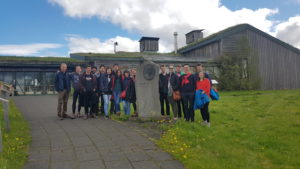
Students visiting a sustainable community in Iceland
The students get a unique opportunity to visit sustainable communities, learn about the different pillars of sustainability, meet the people who build the community, understand the challenges and the opportunities of such a collaboration.
Learn about recycled art, renewable energy, sustainable buildings, organic and biodynamic farming and other subjects while visiting the communities.
Have a question? Please ask us in an email.
Local farming
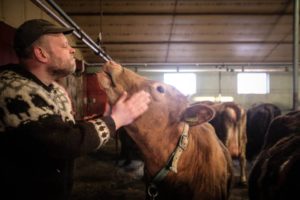
A local farmer with his cow in Iceland
Almost all farming in Iceland is small scale and run by families. All domestic animals including the dogs and cats are settlement animals, be it cow, sheep, horse, goat or chicken. They were all brought here by the vikings around year 870 A.D. The students can meet with farmers specializing in dairy, sheep or horse farming.
Want your students to meet with farmers who focus on sustainable and organic farming? We can arrange visits with different farming depending on the students’ interest. There are sheep farmers how design their own knitware, dairy farmers who run a geothermal borehole on their farm or farmers who aim at being 100% sustainable in the near future.
Have a question? Please ask us in an email.
Green Energy and Second Generation Biofuels
Green Energy and Second Generation Biofuels
Biological production of second-generation biofuels (Bio-ethanol, Bio-hydrogen and Bio-methane) from lignocellulosic biomas (grass, hemp, straw, cellulose, paper) and production of high-value chemical building blocks from macroalgea using thermophilic bacteria isolated from Icelandic hot springs.
Have a question? Please ask us in an email.
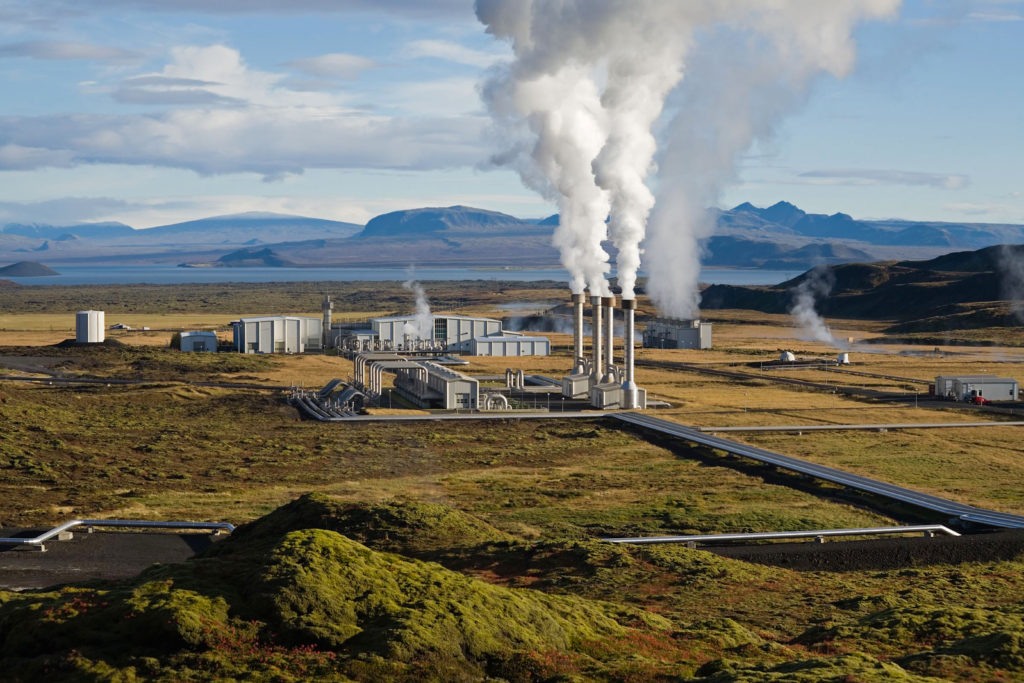
A geothermal powerlplant in Iceland
Climate Change: carbon sequestration and rewetting of wetlands - possible solutions?
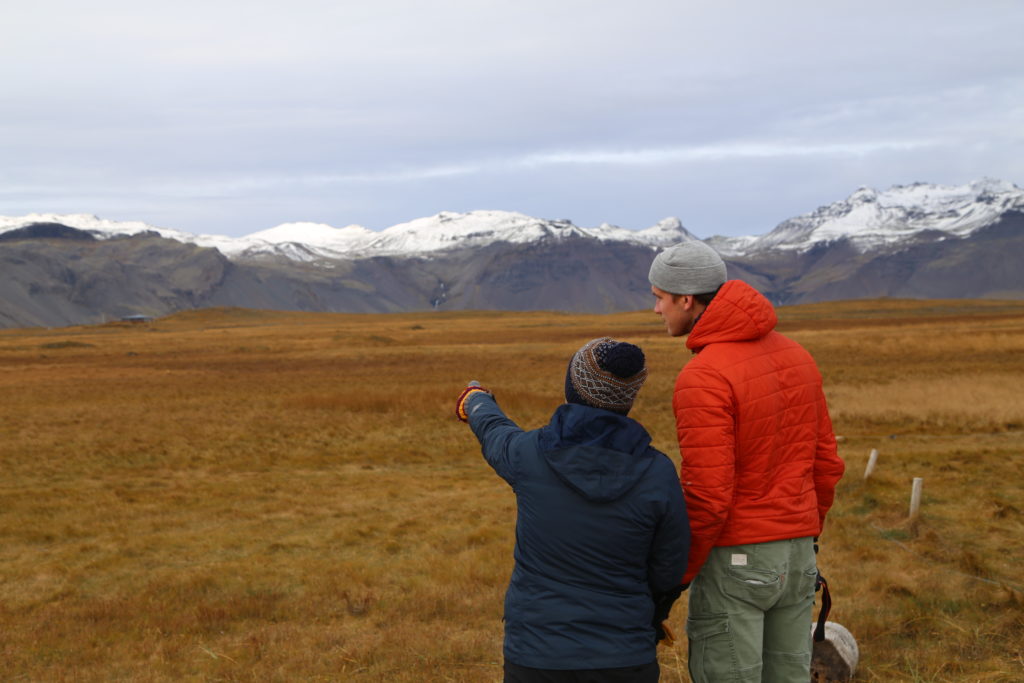
Exploring possible solutions
Climate Change: carbon sequestration and rewetting of wetlands – possible solutions?
Icelandic ecosystems are diverse and unique. A way of tackling ongoing climate change is to focus on solutions that either bind CO2 from the athmosphere or decrease the emissions. Carbon sequestration and wetland reclamation are one of the main emphasis in a recent Climate Strategy in Iceland.But how do these solutions work? In this presentation these methods will be discussed as a tool in the fight against climate change, both on local and global scale.
Have a question? Please ask us in an email.
Impacts of a Changing Climate on Ocean Currents
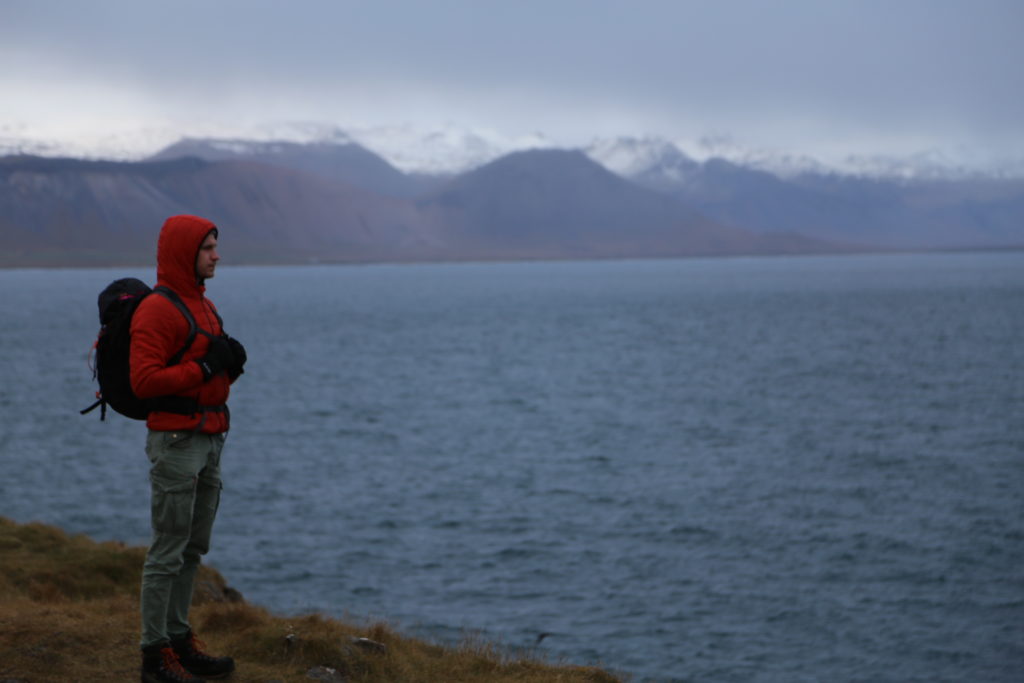
Overlooking the ocean
Ocean currents and properties of the waters of the North Atlantic and Arctic Oceans. Climate variability and associated changes in historical contexts. The influence of climate change on these areas and future prospects.
Have a question? Please ask us in an email.
The Biosphere of extreme Ecosystems in Iceland
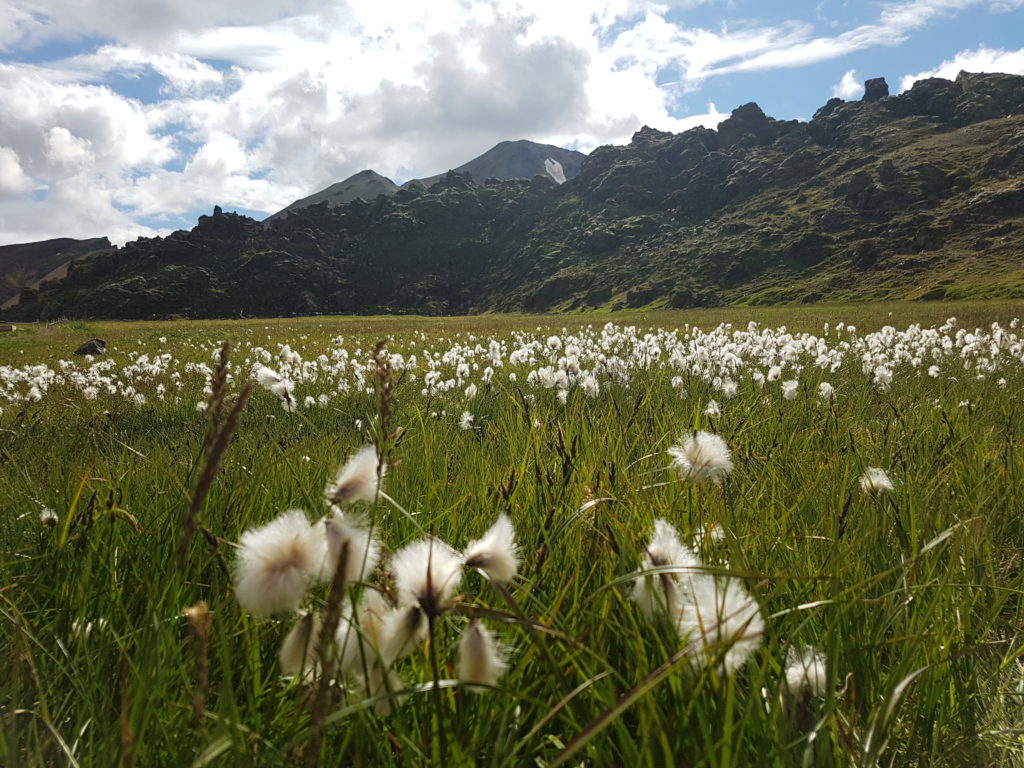
Iceland has extreme ecosystems
The Biosphere of extreme Ecosystems in Iceland.
Extreme ecosystems are widely spread all over Iceland, in lava caves, hot springs, glacial rivers, sandy deserts and natural gas sepage pockmarks as well as in hydrothermal vents on the ocean floor of Eyjafjörður in North-Iceland. Extreme organisms are commonly found in such extreme ecosystems, for instance bacteria with analogy to planet Mars and bacteria and other organisms that may have a wide utilization potential in waste and biopolymer degradation etc.
Have a question? Please ask us in an email.
Global fisheries and climate change
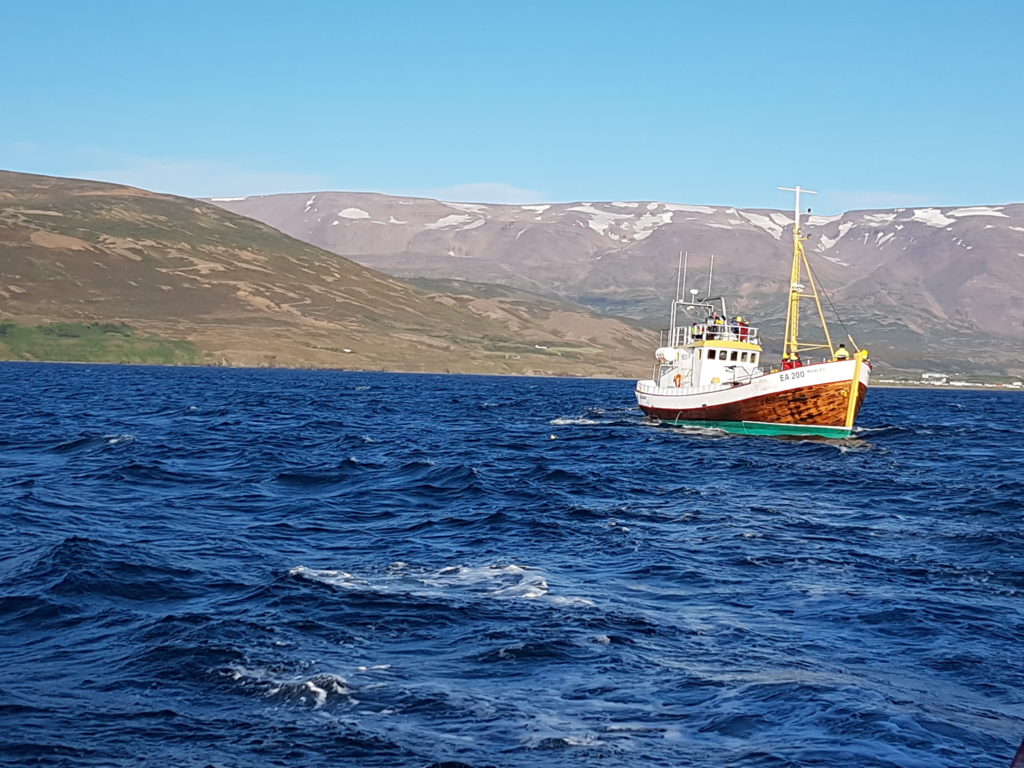
A fishing boat in Iceland
Seminars on fisheries are split into three parts:
1: Global fisheries: the importance of fisheries globally and the place of Iceland in terms of that. The importance of fish in global trade and value creation in fisheries.
2: Transformation of the Icelandic fish industry: The transformation of the Icelandic fish industry from being seasonal industry into one of the most modern and competitive fish industry in the world will be introduced. Today the industry is focusing on serving the markets instead of being harvesting driven. Comparisons will be made with other countries how fisheries perform.
3: Fisheries and climate change: What is predicted to happen with the fisheries? Examples from Iceland and adjacent areas on the effect of warming.
Have a question? Please ask us in an email.
Icelandic quota system
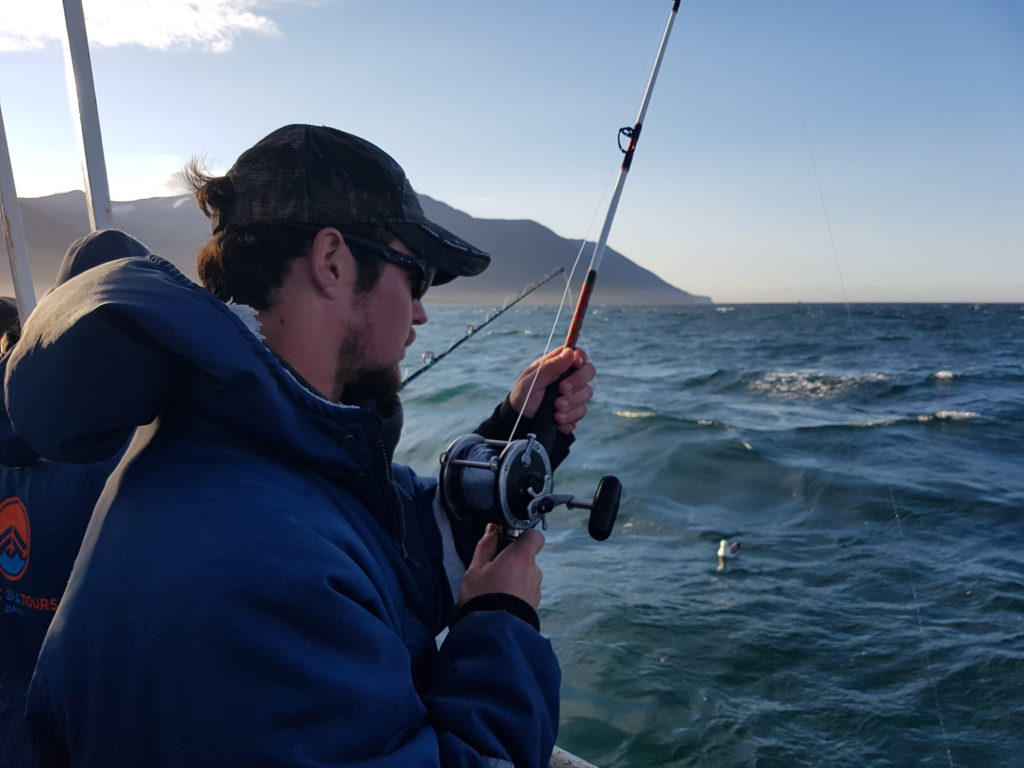
Sea angling in Iceland
Icelandic quota system
The presentation focuses on fisheries in Iceland and why the Icelandic quota system was installed. It starts with a brief overview of the very debated Icelandic transferable quota system, arguments against the system and the overall goals of fisheries management in general. A brief history of Icelandic fisheries follows, including information of the cod wars and previous problems with overfishing of Icelandic fish stocks.
The installation of the quota system and the effects of the system as of today is then discussed, whereas the quota system and the technological innovation in fisheries has been linked to population and jobs being lost in rural areas.
The presentation also explains how rural areas in Iceland have coped with the loss of fisheries, the adaptation of the coastal fishing system and the controversial subject of whale watching versus whale hunting in Iceland. Finally the presentation airs thoughts about who owns the fish in the sea and foundations for taxation of the fishing industry.
Have a question? Please ask us in an email.
Microplastics and us
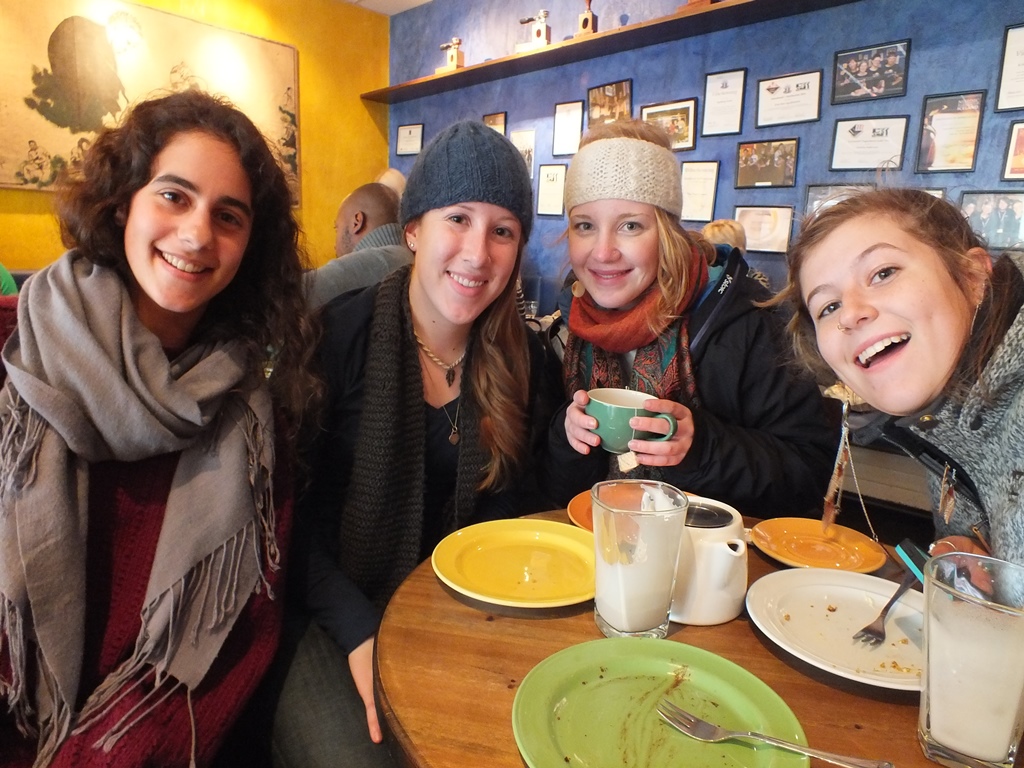
Microplastics are all around us
Microplastics and us
What is microplastics and form where does it originate? Is it possible to avoid or get rid microplastics from our environment? Is microplastic in our food, our drinking water and everywhere in our environment?
Have a question? Please ask us in an email.
Innovation in Icelandic Food and Cosmetic Products
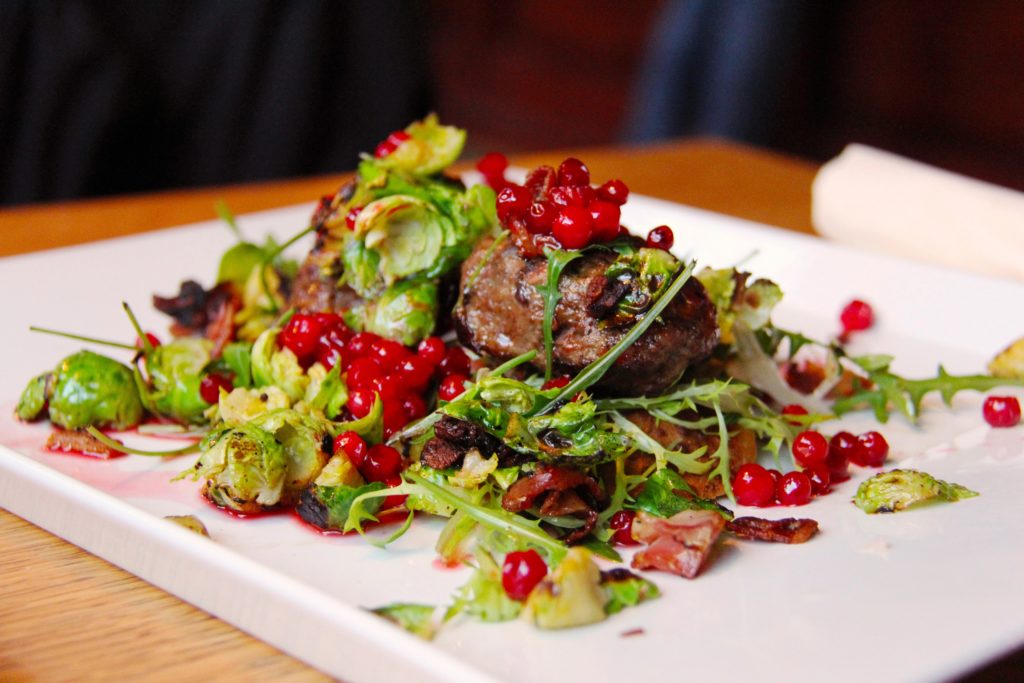
A plate of delicious Icelandic Lamb
Innovation in Icelandic Food and Cosmetic Products
Innovation and the development of novel, high-value products through improved utilization of side products from traditional food production and processing. Start-up companies and initiatives. Arnheiður Eyþórsdóttir PhD student at University of Akureyri is engaged in bioprospecting and the search for bioactive products in organisms of the hydrothermal vents on the ocean floor of Eyjafjörður in North-Iceland. Several other staff are involved in various research in this field.
Have a question? Please ask us in an email.
Lectures on culture, heritage and history in Iceland
A list of lectures related to the culture, heritage and history of Iceland available for study abroad students. Behind each lecture is one or more experts who is available to meet the students.
Have a question? Please ask us in an email.
Icelandic language and culture
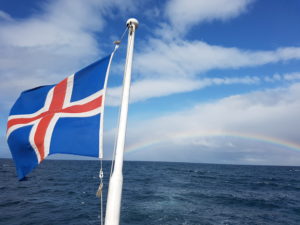
The Icelandic flag
A lecture on Icelandic language and modern culture. The students will get an introduction to the language by learning a few common greeting, understand the pronunciations and the setup of the Icelandic name system. They will also get a fun insight into Icelandic culture, what Icelanders of today do on their freetime, what is the most popular sport in Iceland, why they are okay with leaving their children unattended in pram outside shops, and why they keep talking about the wether!
Have a question? Please ask us in an email.
Iceland in the Viking Age
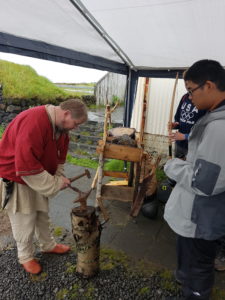
Learning about the life of the vikings in Iceland
The focus in this lecture is on Iceland during the period known as the Viking Age c.a. 700-1100 AD. We will consider the stories of some of the first settlers as they are preserved in the Icelandic Medieval manuscripts and the archaeological record.
We will try to understand the world of the men and women who first inhabited this country by considering their origins as well as their social, cultural and religious backgrounds. We will look at the society they created, the structure of their government and how religion played an important role.
The main question are:
“Where did the first settlers of Iceland come from?”
“What motivated them to settle land in Iceland”?
“How have the stories of these people sharped Icelandic identiy and culture?”
Have a question? Please ask us in an email
The Viking age
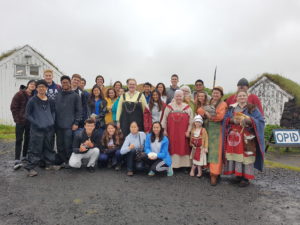
Learning about the viking age in Iceland
The goal of this lecture is to give you a short summary and overview of the period in history generally referred to as the Viking Age c.a. 700-1100 AD. The era is generally associated with masculinity and the focus placed on the affairs of historically influential males such as warriors, chieftains and kings.
This is only one aspect of the Viking Age, a time of exploration as well as social and religious change. We will discuss the origins of the people known as the Vikings, their societal structure, their beliefs, their travels and their effect on the cultures they interacted with.
The basic questions are:
“Who were the Vikings? What did they believe”?
“Where did they go and what did they do there”?
“Where they active and what was their effect”?
Have a question? Plese ask us in an email.
Religion in the Viking Age
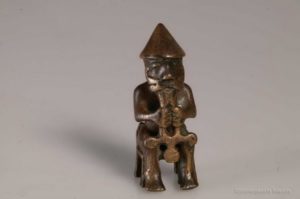
Old Norse religious symbol
In this lecture we will discuss the main points of the religion of Scandinavia and Iceland prior to the arrival of Christianity in the North, a field of academic study known as Old Norse Religion.
According to the extant written sources the religious world of the vikings was inhabited by a range of powerful beings and supernatural entities which affected the lives of humans in various ways.
We will consider both these beings and the world in which they existed, learn of its creation and inevitable destruction and attempt to understand how such beliefs shaped the world view of the people of these times.
The main questions are:
“How did they perceive the world and their place in it?”
“What were the main religious roles of men and women?”
“How did people imagine the afterlife?”
Have a question? Please ask us in an email.
Life in the turf house
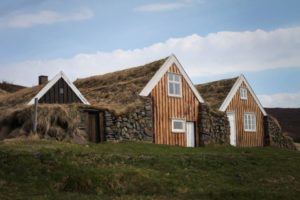
A replica of a turf house in Iceland
From the settlement of Iceland to the middle of the 20th century the majority of Icelanders lived off the land on small farms dotting the countryside.
They built houses from local materials and the constant lack of trees posed a set of unique challenges. Life was hard and shaped the Icelandic mentality and spirit as well as the culture, food, traditions, stories and beliefs of the people. In this lecture we will consider all of these elements and more.
The main questions are:
“How did people survive in Iceland through the ages?”
“What unique Icelandic traditions originate in the old farming society?”
“How has life in the Icelandic turf house shaped the culture, believes and identity of the Icelandic nation?”
Have a question? Please ask us in an email.
Icelandic Folk stories and lore
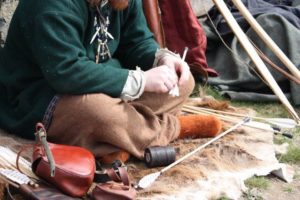
Telling stories in the viking era
We will hear examples of the stories told of elves, trolls, water spirits, magicians, ghosts and even the devil. We will also discover what makes these stories, some of which can be compared to well known European counterparts, unique to Iceland.
Main questions:
“Where do Icelandic legends come from?”
“What makes the Icelandic folk material unique to Iceland?”
Archeology in Iceland
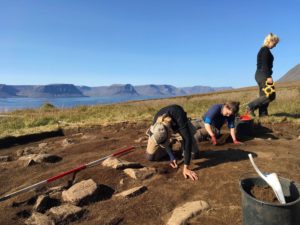
An archeology site in Iceland
A lecture on archeology in the land where the history is at every step. Most are familiar with the breathtaking natural features of Iceland, but the archaeology and history is just as fascinating. Learn about the archaeological research on Icelands viking settlement, the first parlaiment at Þingvellir and the Icelandic sagas.
Learn about discoveries that uncover the life of Icelanders of the centuries past and artifacts that can be linked to certain characters from the sagas.
Have a question? Please ask us in an email.
Women in the Viking Age
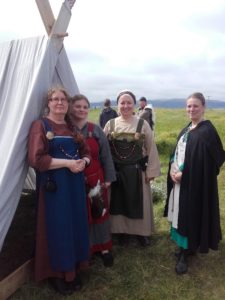
The women in the Viking age
In this lecture, the primary focus will be on the women of the Viking Age c.a. 700-1100 AD. We will discuss the presence of women in most areas of life and consider things like: who they were, where they travelled, how they lived, their roles in the religion of the time, how they were buried and where they expected to go in the afterlife.
Finally we will discuss how the idea of the strong, proud, independent and even fierce “viking woman” affects the identity of the Icelandic nation and it’s women in particular.
The basic questions are:
“What roles and rights did women have in Viking Age society?”
“How was the feminine presented and represented in religion?”
“Do stories of the lives of women in the VIking Age hve any relevance in modern Iceland?”
Have a question? Please ask us in an email.
Þingvellir - the site of the parlaiment
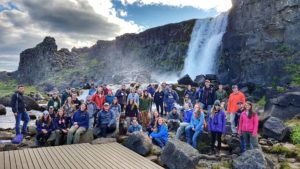
A group of students posing by Öxará waterfall at Þingvellir national park
This lecture gives an overview of the main historical events which took place at Þingvellir and shaped the Icelandic nation. The Icelandic parliament, Alþingi, was first convened in 930 AD as the settlement of Iceland was completed.
We will discuss the system of government set up by these first Icelanders and learn how it was connected to the religious beliefs of the time. We will go over the highly political sequence of events which lead to the acceptance of Chrsitianity by the pagan parliament.
We will also consider how and why Þingvellir became hailed as the “heart of the Icelandic Nation” during the struggle for independence (c.a. 1850-1944).
The main questions are:
“What historical events took place at Þingvellir?”
“What is the cultureal significance of Þingvellir?”
Have a question? Please ask us in an email.
The acceptance of Christianity in Iceland
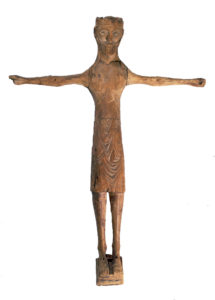
Old nordic religious symbol
We will then consider how and through which channels, both official and unofficial, the new religion of Christianity was introduced in Iceland. Finally we will discuss the official conversion of the country to Christianity, a decision made by the pagan parliament in the year 999/1000 AD.
The main questions are:
“When and how was Christianity introduced in Iceland?”
“What concessions were made to ensure a peaceful conversion of the population?”
Have a question? Please ask us in an email.
The Icelandic Medieval manuscripts
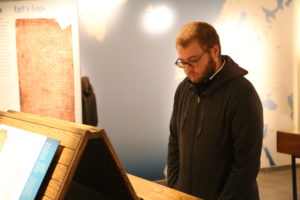
Learning about the manuscripts in Iceland
This lecture will give an overview of the unique manuscripts, written in the vernacular by Icelandic scholars of the 12-14th centuries. It will focus specifically on those works which deal with the settlement of the country and reveal, in surprising detail, life in 10th century Iceland.
We will also consider how the information found in these sources has contributed to the creation of an Icelandic national identity.
The main questions are:
“What do written sources tell us about the settlement of Iceland?”
“What are the main problems when working with the written sources?”
“How have these stories affected the development of an Icelandic national identity?”
Have a question? Please ask us in an email.
